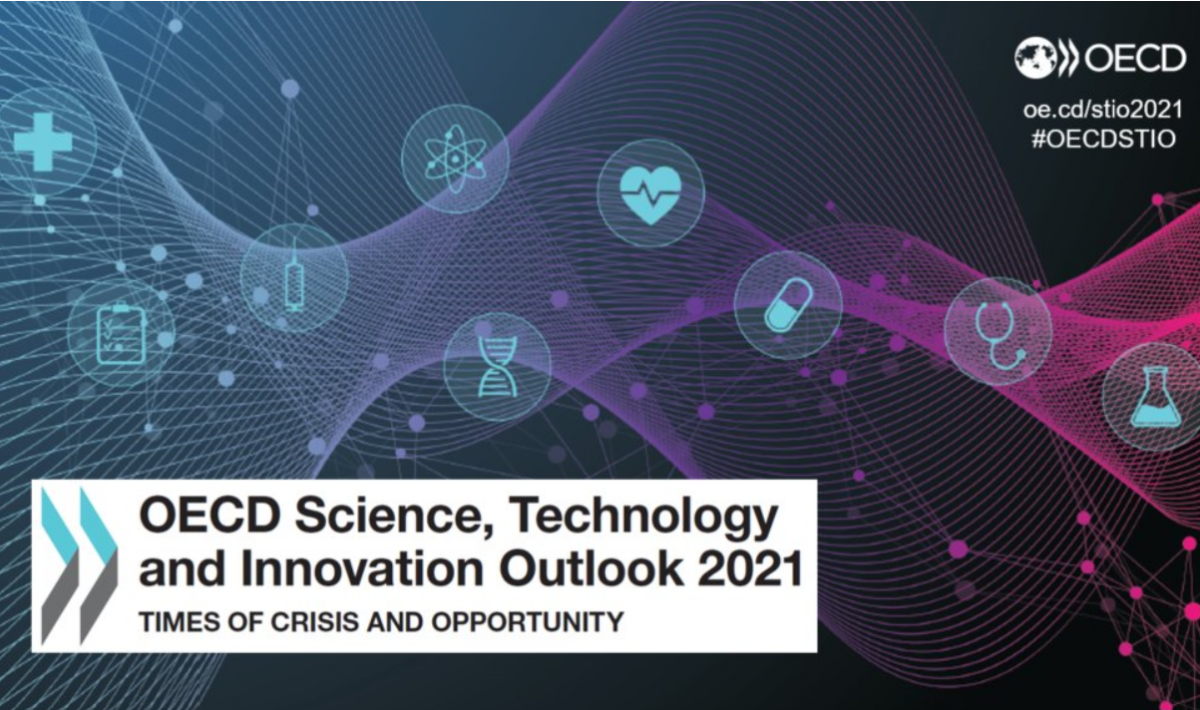The OECD’s Science, Technology and Innovation Outlook 2021 is now out, which reviews key trends in science, technology, and innovation (STI) in OECD countries and major partner economies: this edition analyses how STI systems have responded to the Covid-19 pandemic and what governments can do to be prepared for future crises.
The report highlights that Research and Innovation systems have responded impressively to the pandemic, as both private and public actors in the STI system have provided solutions to the crisis: this is evident in the rapid development of vaccines, but also in the rollout of digital technologies that have helped lessen the pandemic’s impact.
If we want to highlight one of the few positive aspects of Covid-19 crisis, we can say that it has further opened access to data and publications, increased the use of digital tools, enhanced international collaboration, spurred a variety of public-private partnerships, and encouraged the active engagement of new players. These developments could speed the transition to more open science and innovation in the longer run.
One of the most negative impacts of the pandemic on the STI system has been identified as the risk of this widespread engagement diverting research efforts indiscriminately away from non-Covid-19-related topics. Important sectors of the STI system have been severely affected, including a large share of SMEs, early-stage start-ups, young researchers, and women – who, on average, devoted more time to care duties at the expense of their STI activities during lockdown. Technology and science are the only exit strategy from Covid-19, and SMEs and companies need to be helped in their recovery and incentivised to focus their efforts on digitalisation and implementation of innovation, now more than ever. Science and innovation will be essential in promoting and delivering a transition to more sustainable and equitable societies; according to the report, governments should change their policy mix in support of R&D in firms towards a system that is more reliant to direct support instruments, such as contracts, grants and awards rather than tax incentives, which are untargeted and tend to generate incremental rather than radical innovations. Well-designed direct measures for R&D are potentially better suited to supporting longer-term, high-risk research, and targeting innovations that either generate public goods or have a high potential for knowledge spillovers. Governments need to revisit their policy portfolios to ensure an appropriate balance between direct and indirect measures.
In conclusion, the report provides a complete analysis that should help policymakers when considering their options in these times of crises and opportunities, underlining how engaging stakeholders and citizens in these efforts will expose policymakers to diverse knowledge and values, which should contribute to policy resilience.
Read the full report here.
Source: The International Network for SMEs - INSME



